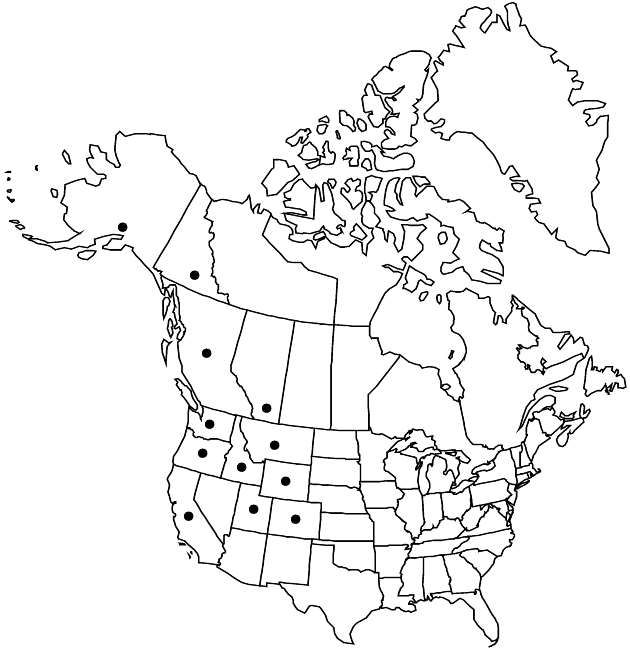Difference between revisions of "Arnica ovata"
Pittonia 4: 161. 1900.
imported>Volume Importer |
imported>Volume Importer |
||
| Line 58: | Line 58: | ||
|publication year=1900 | |publication year=1900 | ||
|special status=Endemic | |special status=Endemic | ||
| − | |source xml=https:// | + | |source xml=https://bitbucket.org/aafc-mbb/fna-data-curation/src/2e0870ddd59836b60bcf96646a41e87ea5a5943a/coarse_grained_fna_xml/V19-20-21/V21_932.xml |
|tribe=Asteraceae tribe Heliantheae | |tribe=Asteraceae tribe Heliantheae | ||
|subtribe=Asteraceae (tribe Heliantheae) subtribe Chaenactidinae | |subtribe=Asteraceae (tribe Heliantheae) subtribe Chaenactidinae | ||
Latest revision as of 20:15, 5 November 2020
Plants 10–50 cm. Stems (forming clumps) simple or branched among heads. Leaves 2–3(–4) pairs (basal 1–2 pairs usually withered by flowering, petiolate, petioles broadly winged, blades round-ovate, relatively small; sterile rosettes lacking), mostly cauline; petiolate (at least middle pair, petioles broadly to narrowly winged); blades broadly deltate to ovate, 4–8 × 2–6 cm (middle pair largest), margins irregularly denticulate to coarsely dentate-serrate, apices acute, faces puberulent (hairs minute) and stipitate-glandular. Heads 1–3(–5). Involucres usually narrowly turbinate, rarely narrowly campanulate. Phyllaries 9–20, linear to narrowly lanceolate. Ray florets 8–16, yellow. Disc florets: corollas yellow; anthers yellow. Cypselae brown to black, 5–7 mm, sparsely to moderately pilose and stipitate-glandular; pappi stramineous to tawny, bristles subplumose. 2n = 57, 76.
Phenology: Flowering Jul–Sep.
Habitat: Moist meadows and conifer forests, stream banks, late snow-melt areas, montane to subalpine
Elevation: 200–3600 m
Distribution

Alta., B.C., Yukon, Alaska, Calif., Colo., Idaho, Mont., Oreg., Utah, Wash., Wyo.
Discussion
Selected References
None.